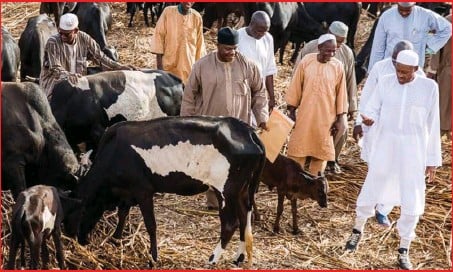WHO recommends milk consumption of 210 litres per person annually in order to prevent malnutrition. The Food and Agriculture Organisation (FAO) says Nigerians consume 8 litres of milk annually which is below the World Health Organisation (WHO) 210 recommendation.
The News Agency of Nigeria (NAN) reports that WHO recommends milk consumption of 210 litres per person annually in order to prevent malnutrition.
It added that malnutrition is prevalent in Nigeria due to the low consumption of dairy products.
FAO Country Representative, Fred Kafeero, who made this known on Tuesday at the World Milk Day conference in Abuja, said Nigerian cattle produce less milk due to low investment and slow policy intervention.
He added that low milk production in Nigeria could be attributed to the cost of the processed milk which is largely imported.
“There are many structural and operational factors responsible for the majority of our people not having access to affordable milk.
“For some, it is the cost of the milk, many urban and rural folks can’t afford consuming milk on a regular basis. It is expensive, especially when you are talking about processed milk.
“Even the raw milk they consume is also expensive for the poor people in those rural areas.
“We acknowledge that the domestic production of milk of about 500,000 metric tons is quite low, the supply gap of 1.2 metric tons means that many people go without milk,” Kafeero said.
The Director-General of Raw Materials Research and Development Council (RMRDC), Prof. Ibrahim Doko, said Nigeria must scale milk production to meet local demand.
Doko was represented by a Deputy Director at the Council, Dr Mary Abiaeye.
He said that domestic production does not meet daily capacity utilisation for the dairy companies and consumer demand while the shortfall is imported.
Doko added that Nigerian cows produce about 1.5 litres to two litres of milk daily compared to Kenya that produces 30 litres a day and Israel 45 to 60 litres a day.
He said Nigeria’s national dairy output per annum is 700,00 metric tons, while national demand is 1.3million metric tons per annum leaving a gap of 600,000MT.
“Nigerian local dairy sector relies mostly on milk production from subsistence Fulani pastoralists, few viable commercial dairy farms and importation.
“The indigenous breeds of cattle have low genetic potentials (low growth rate and milk yield).
“This is possibly due to poor management system and stress of endless trekking in search of pasture,” he said.
News Agency Of Nigeria













